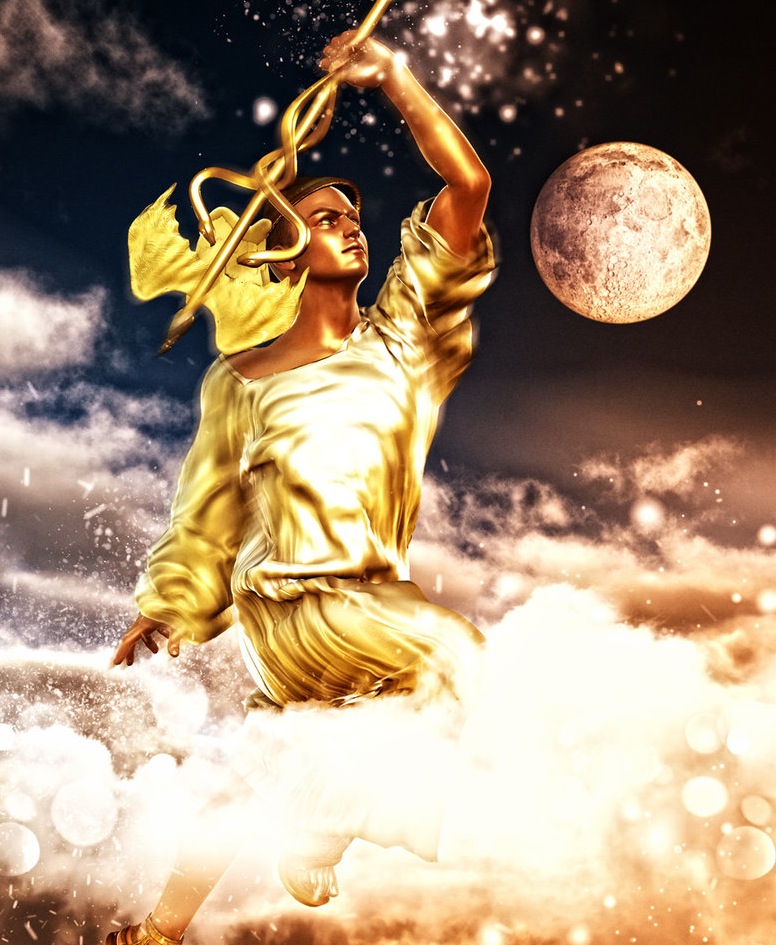Kaitlyn Muser

Description: Hermes
Image copyright: http://mavericksquared.com/www/?p=449
In most myths he’s a trickster. He outwits the other gods for his own satisfaction or sake of humankind. His symbols include the herma, the rooster, the tortoise, purse or pouch, winged sandals, winged cap, but his main symbol is herald’s staff. Which consisted of two snakes wrapped around winged staff? Hermes is identified with roman god Mercury, through inherited from Ethruscans. He developed many similar traits, such as patron of commerce.
When he was a day old he was stealing sheep, bartending goods and contemplating small print of manufactures’ warranties. He found a herd of cattle and decided to take them home to play with. But didn’t know that the herd was Apollo’s. Realizing adults can be a bit funny, covered their tracks anyway. Hermes produced small lyres made from tortoise shells, and played a few amazing cords using plectrum.
Hermes is the fastest god. Wearing winged sandals, winged hat, and carries a magic wand. He’s the guide for the dead to the underworld. He’s the inventor of lyre, pipes, musical scale, astronomy, weights and measures, boxing, gymnastics, and care of olive trees. The earliest form of his name is Mycenaean Greek. Scholars derive “Hermes” from Greek herma, may be related to hermeneus, Function as divine messenger. Plato offers Socratic folk-etymology for his name, deriving from dinvien messengers’ reliance on eirein. Speculations about Hermes derive from more primitive form.
